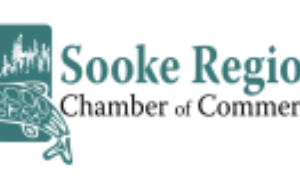 CFIB urges governments to help hardest hit with property tax relief and emergency money to cover fixed costs
CFIB urges governments to help hardest hit with property tax relief and emergency money to cover fixed costs
New survey results taken over the weekend show that a quarter of small businesses are not able to pay April’s commercial lease or mortgage payments as a result of COVID-19 disruptions, says the Canadian Federation of Independent Business (CFIB). Hospitality is particularly hard hit with 44 per cent saying they cannot meet their rent obligations. Other sectors hard-hit include arts, recreation & information (40 per cent) and personal services (32 per cent).
“Last week brought good news for many with respect to an increased wage subsidy but the next big bill looming for many is commercial rent,” said Laura Jones, CFIB’s executive vice-president. “Business owners—both leasers and landlords—are worried as everyone has bills to pay.”
Key survey results include:
- Only one in five businesses now report being fully open (down from one in three last week);
- 86 per cent of small businesses believe government should make emergency money available to businesses that have been hard hit by COVID-19 to cover their fixed costs;
- 42 per cent of business owners are worried about having to close their business permanently.
CFIB has three main recommendations for governments in this area:
- Provincial governments should provide substantial commercial property tax relief for the duration of the crisis (at least 25 per cent reduction in annual total property tax bill).
- The federal government should ensure that $10,000 of its Canada Emergency Business Account is forgivable to cover rent and other fixed costs and that eligibility criteria are such that businesses hardest hit and most at risk of closing permanently will have access to the money. The money should be made available as quickly as possible.
- Provincial governments should create a hardship fund with additional emergency money for businesses with significant revenue losses, significant cost increases and/or who are at risk of permanent closure due to COVID-19 (up to $5,000 per month for 3 months) to help small businesses pay rent and offset other fixed costs. Priority should be given to businesses that were forced to close and those not covered by federal programs.
CFIB is also calling on provincial governments to create temporary protections to ensure that commercial tenants are not evicted during the COVID-19 crisis.
“We believe a combination of property tax relief that can be passed on from landlords to tenants and hardship money for those hardest hit is the next important thing governments can do to help Main Street survive,” added Jones.
CFIB also has some advice for business owners including encouraging landlords and tenants to continue to communicate and work out arrangements, putting rental deferral agreements in writing, and keeping good records.
“Protecting livelihoods is going to be a group effort—we all need to do what we can including paying bills where possible and negotiating fair arrangements with businesses in our supply chains that have been hard hit,” concluded Jones. “April 1 is feeling scary for some but it’s in everyone’s interest to make this work.”
Read CFIB’s policy backgrounder for more information.
Methodology:
These findings are from CFIB’s latest weekly survey on COVID-19 and small business, a new online survey completed by 9,364 CFIB members between March 27 and March 29, 2020. For comparison purposes, a probability sample with the same number of respondents would have a margin of error of plus or minus 1.0 percent, 19 times out of 20.
About CFIB
The Canadian Federation of Independent Business (CFIB) is Canada’s largest association of small and medium-sized businesses with 110,000 members across every industry and region. CFIB is dedicated to increasing business owners’ chances of success by driving policy change at all levels of government, providing expert advice and tools, and negotiating exclusive savings. Learn more at cfib.ca.
SOURCE Canadian Federation of Independent Business




